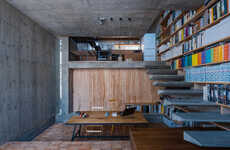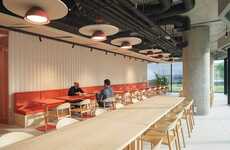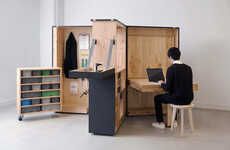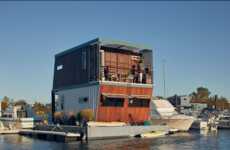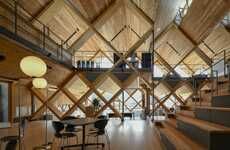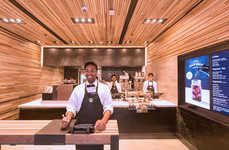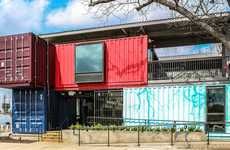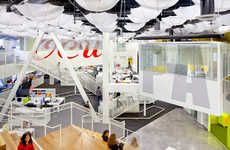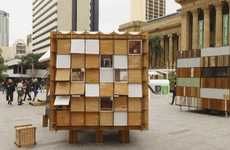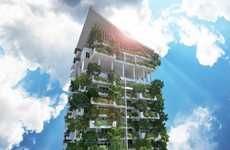
The Sugoroku Office by Daiken-Met Architects is Stacked Cargo Boxes
Rebecca Byers — March 12, 2012 — Art & Design
References: blog.leibal & containerliving.net
The Sugoroku Office by Daiken-Met Architects is an innovative and modern space located in Gifu, Japan. The building was designed so that it could be easily taken apart for movement, making it a mobile space. Daiken-Met Architects is a Japanese practice and the Sugoroku Office is their personal studio. The three-story framework supports stacked shipping containers, which form work areas and even potentially living spaces on the penthouse floor.
The Sugoroku Office by Daiken-Met Architects was built on a short-term contract after they proposed the temporary structure, which doesn't need construction below street level. The Sugoroku Office is an example of shipping container architecture, a cost-effective and strong alternative to conventional buildings that is easily transported and widely available.
The Sugoroku Office by Daiken-Met Architects was built on a short-term contract after they proposed the temporary structure, which doesn't need construction below street level. The Sugoroku Office is an example of shipping container architecture, a cost-effective and strong alternative to conventional buildings that is easily transported and widely available.
Trend Themes
1. Mobile Workspaces - The Sugoroku Office demonstrates the potential for easily movable and adaptable workspaces using shipping containers.
2. Shipping Container Architecture - The use of shipping containers as building materials presents a disruptive innovation opportunity within the construction industry for cost-effective and easily transportable structures.
3. Temporary Structures - The concept of temporary, easily assembled and disassembled structures offers a disruptive innovation opportunity for event spaces, pop-up shops, and disaster relief shelters.
Industry Implications
1. Architecture - The architecture industry can benefit from exploring the possibilities of using shipping containers as building materials for cost-effective and easily transportable structures.
2. Construction - The construction industry can seize the opportunity to innovate by incorporating shipping containers as a viable alternative to conventional building materials for cost savings and flexibility.
3. Events and Retail - The events and retail industries can leverage the concept of temporary structures, such as shipping container pop-up shops, to create unique and flexible spaces that stand out from traditional storefronts.
6.6
Score
Popularity
Activity
Freshness




